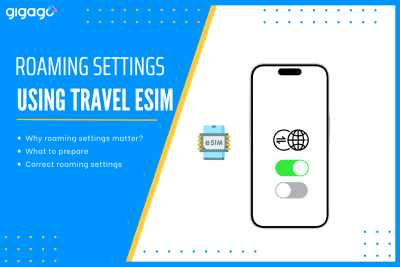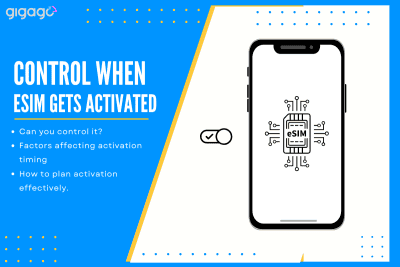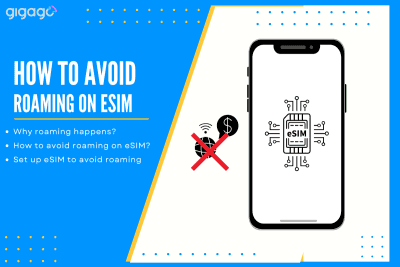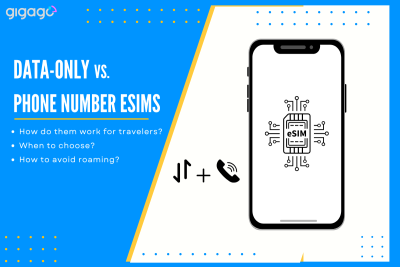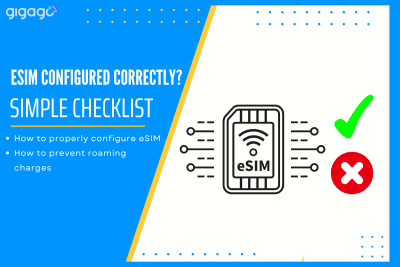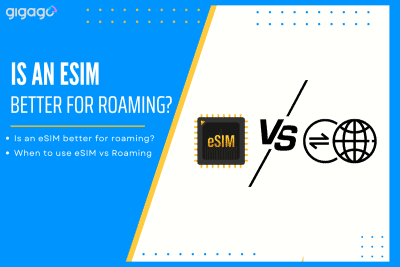Going abroad with a travel eSIM is easy if your phone’s roaming settings are right. Once you get them wrong and you will either have no internet or pay sky-high fees on your regular SIM. The guide below shows, step by step guides on correct roaming settings when using a travel eSIM. You will know […]
Prepaid vs Postpaid Plan: Which is better and how?
Choosing prepaid or postpaid plans can be difficult if you do not understand their basics and your own preferences. Learn comparison of prepaid vs. postpaid plans to see which one is better for you.
There are two types of mobile plans, which are prepaid and postpaid plans. Choosing which one to use can affect your daily telecommunication life. Both options have pros and cons which will be suitable for specific groups of users. If you are wondering prepaid vs postpaid plan , which one is better and how to choose the best one for your needs, do not skip our post below.
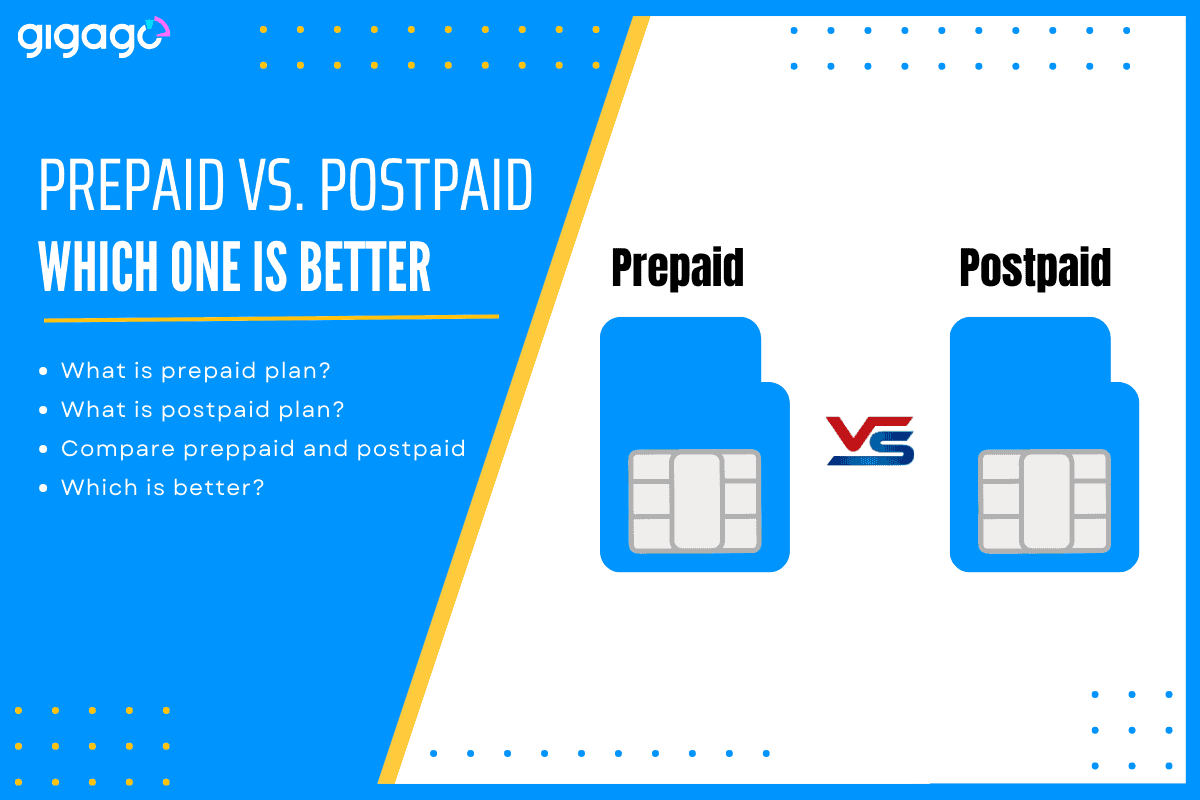
In this article
I. What is a prepaid mobile plan?
What does “prepaid” mean?
Prepaid refers to a billing system in which users pay for services before actually using them.
What is a prepaid mobile plan?
A prepaid mobile plan, also known as pay-as-you-go plans, is a flexible approach to mobile service where users pay for their mobile service usage in advance. There is no contract, credit check or commitment with prepaid plans.
For example, below is the image of prepaid plans of DTAC mobile network operator in Thailand:
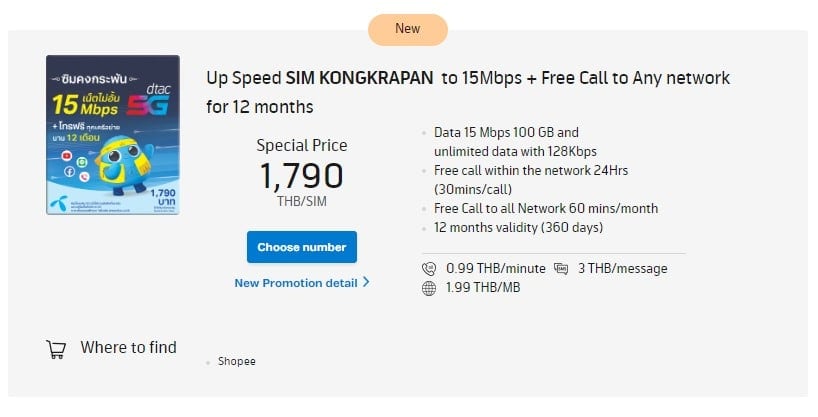
How does a prepaid mobile plan work?
Prepaid mobile plans put you in control of your spending and usage. Here’s how they work:
- Pay in advance
- Monitor your usage
- Recharge or top up
- No contract commitments
Who often uses prepaid mobile plans?
Prepaid mobile plans are suitable for budget-conscious users, temporary users who do not use phones frequently, and users with limited or no credit history.
Advantages and Disadvantages of prepaid plans:
Advantages are:
- Flexibility: You can choose the plans that suit your needs (usage and budget) and change plans or carriers without penalty. No hidden fees or credit checks.
- Cost control: You only pay for what you use without surprising bills. This helps budget and prevent overspending.
- No contract: prepaid plans do not require credit checks, making them accessible to everyone.
Disadvantages are:
- Limited service options compared to postpaid ones
- Risk of running out of credit without preparation
- Potentially higher cost for services
II. What is a postpaid mobile plan?
What does “postpaid” mean?
Postpaid means users pay for services after already using them, usually at the end of a specific cycle.
What is a postpaid mobile plan?
A postpaid mobile plan is essentially a “pay-later” billing system where you are charged after using the service. You use your phone for calling, texting and using mobile data throughout the month, and then receive a bill at the end of the billing cycle for what you use.
Postpaid plans typically require a credit check and come with contracts that lock you in for a specific duration, often 12 or 24 months. After the initial contract period, the plan usually automatically renews on a monthly basis until you choose to change or cancel it.
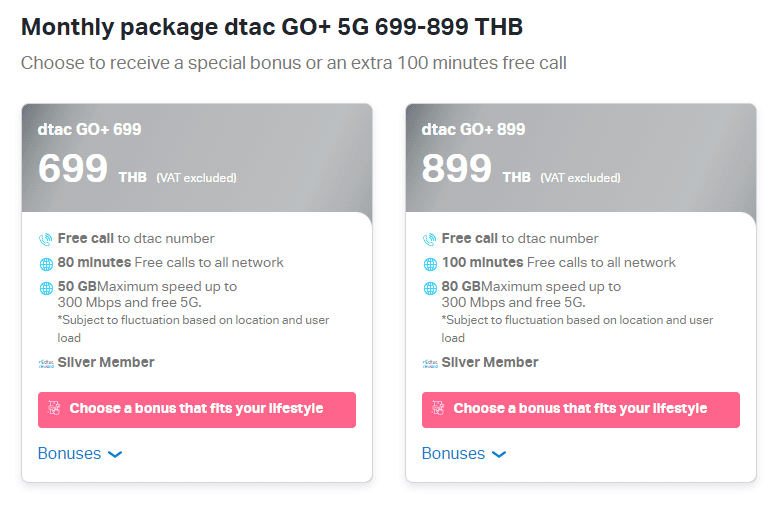
How does a postpaid mobile plan work?
Postpaid mobile plans offer convenience and a wider range of features. Here is how they work:
- Select a plan first: you need to choose a plan with a fixed amount of minutes, texts and cellular data.
- Use mobile services on your phone: you can make calls, send text messages or browse the web throughout the period.
- Receive a bill: at the end of the billing cycle (usually one month) you will receive a bill mentioning your usage and possible additional charges.
- Make a payment: You pay for the services used during that billing cycle.
Good to know:
Postpaid plans used to mean being locked into a lengthy contract, but now you can find a lot of contract-free postpaid plans. Contract free postpaid plans give you the freedom to cancel or switch plans anytime. You will get billed at the end of each month for your usage, like traditional postpaid, but without the commitment or risk of penalties for leaving early.
Who often uses postpaid mobile plans?
Postpaid plans are often preferred by:
- Those who use their phones frequently, like heavy users
- Those who prefer unlimited options,
- Those who want discount or financing plans for new phones, and
- Those who love additional services like streaming subscriptions, international roaming, or family discounts.
Advantages and Disadvantages of postpaid plans
Major advantages are:
- Potential lower overall cost (for heavy users): postpaid plans, especially those with unlimited data, can cost less than the prepaid plan if you are a heavy user (frequently talk or text or stream). It is cost-effective in the long run.
- Bundled services: Bonus services such as streaming subscriptions or international roaming, often included with postpaid plans.
- Always connected: No more unexpected running out of credit, no need to top up, you will never be caught without service unexpectedly.
Disadvantages are:
- Higher costs in the short term: expect to pay more per month compared to some prepaid options
- A contract commitment with potential fees: some plans lock you in, so breaking the contract leads to a fee.
- Credit check: you may need good credit to qualify for a postpaid plan.
III. Prepaid vs Postpaid plans – Which is better?
Before giving you the answer which one is better, below we make a table comparing between prepaids and postpaids:
| Criteria | Prepaid plan | Postpaid plan |
| Cost | – Lower upfront cost Pay-as-you-go, so you only pay what you use – Potential for overage fees if you excess your allowance | – Higher monthly cost – Fixed monthly bill, regardless of usage – Potential for savings for heavy users in the long run |
| Contract | – No contract, offering maximum flexibility – Cancel anytime without penalty | – Traditionally required contracts, but contract-free- options are becoming more common – Early termination fees may apply if you break a contract |
| Data | – Pay per MB, fixed data allowances, and unlimited options available – May need to monitor usage closely to avoid overage charges | – Typically offer unlimited talk and text – International calling/texting options included |
Which one is better? Prepaid or postpaid?
There is no single “better” option between prepaid and postpaid plans. The best choice will depend on your individual needs, preferences, usage patterns, and other financial considerations.
You should consider prepaid if:
- You are on a budget
- You use your phone lightly
- You prefer flexibility
- You want to avoid contracts and credit checks
- You are going to travel internationally
You should consider postpaid if:
- You are a heavy user, either with data, calling or texting
- You love convenience and other extra features
- You want to buy a new phone coming with attractive financing or lease options
► Read more: How much data do you need when traveling abroad?
IV. Prepaid vs. postpaid plan – Which is better when traveling abroad?
When traveling internationally, choosing between a prepaid and postpaid plan depends on your individual needs, such as travel style and data requirements. However, for many travelers, prepaid plans seem to be the better choice thanks to their convenience, affordability, and flexibility.
V. FAQs
What are differences between prepaid and postpaid mobile plans?
The biggest difference between prepaid and postpaid plans is its payment timing and flexibility. Prepaids require payment in advance, while postpaids mean you pay after using the service, usually a monthly bill.
Is prepaid cheaper than postpaid?
It depends. Prepaid plans are cheaper than postpaid plans in the short term because they require upfront payment and have fewer features included. However, postpaid plans can be more cost-effective in the long run. Ultimately, the cost-effectiveness will depend on individual usage patterns and specific plans offered by different providers.
Do I need a new eSIM for postpaid?
Not necessarily. Some providers offer eSIM compatibility, allowing you to activate a plan digitally without a physical SIM card. Others allow you to transfer your existing number to a new SIM card instead of getting a completely new one.
Can I switch from a prepaid to a postpaid plan and vice versa?
Yes, most mobile carriers will allow you to switch between plans, but you may need to pay some fees or prepare some requirements when doing so.
Are there credit checks when using a prepaid plan?
Typically, no. Prepaid plans often do not require credit checks, making them easily accessible to a wide range of users.
Do prepaid mobile plans offer shared or family options?
While less common than with postpaid plans, some prepaid options offer plans which can be shared among multiple devices or users, which is called tethering/hotspot feature.
What are additional fees with prepaid plans that I should acknowledge?
Prepaid plans also come with various fees like activation, top-ups or even purchasing the SIM card. You need to read the description of the plan before buying.
Is it possible to get an international plan with a prepaid service?
Yes, there are international prepaid SIM/eSIM plans which include data, calls and texts for using abroad. But, the plan and coverage options may be more limited than postpaid international plans.
